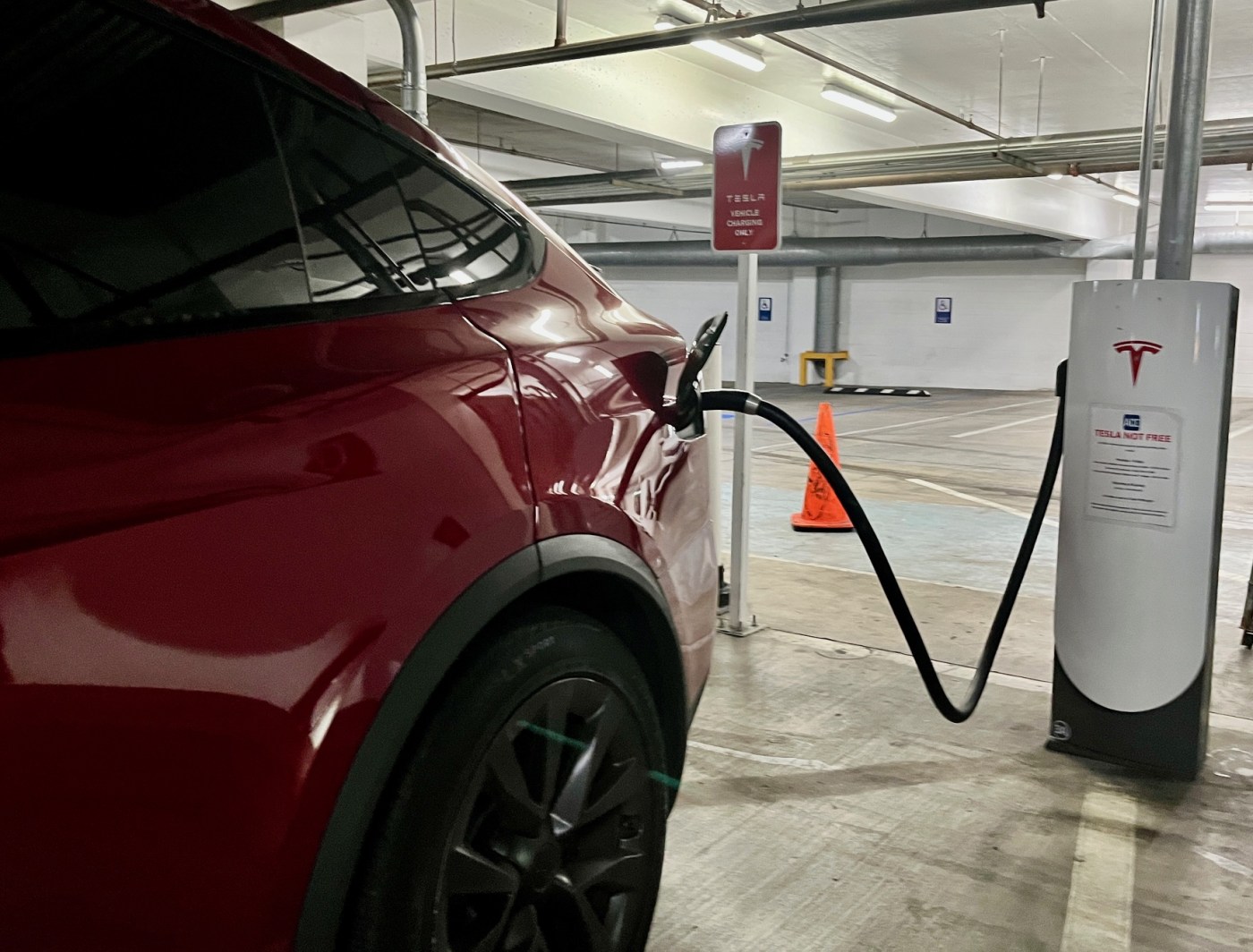
Sales of new electric vehicles in California remained sluggish in the second quarter of this year and the road ahead appears bumpy, as federal tax credits will expire at the end of next month.
Related Articles
Gasoline prices cooled off this summer in California. The politics haven’t.
These flying taxi companies want to soar over gridlock — for the cost of an Uber
Tesla’s darkening outlook to test robotaxi vision pushed by Musk
Tesla’s sales in California drops for seventh straight quarter
Global electric vehicle market surges as demand shifts toward fully electric models
The number of EVs registered between April and June in the Golden State came to 100,671, according to figures released by the California Energy Commission. That’s ever so slightly higher than the first-quarter figure of 100,326 but noticeably lower than the 116,813 registrations seen in the second quarter of 2024.
What’s more, the market share for sales of zero-emission vehicles dropped to 21.6% from April through June, down from 23% in the first quarter and 25.1% in the fourth quarter of 2024.
The California New Car Dealers Association released its own second-quarter figures that largely paralleled the energy commission’s numbers and percentages.
Ivan Drury, senior manager of auto insights at Edmunds, said a number of factors came into play, including concerns by potential buyers that tariffs on cars and trucks from the Trump administration would go into effect in April or May.
“It’s not surprising to see that EVs tapered off,” Drury said. “It makes sense because (the California market) is the place that has the most receptivity” to zero-emission purchases.
The second-quarter numbers came just days before what was dubbed the “Big Beautiful Bill,” led by Republicans on Capitol Hill, was signed into law July 4 by President Donald Trump. The 940-page budget bill affects taxes and spending on multiple elements of the nation’s economy, including the auto industry.
Under the new legislation, federal tax incentives for buying an electric vehicle will expire Sept. 30. That includes a credit of up to $7,500 on a new EV, or $4,000 for a used one. The credit for buying and installing a home charging station will end June 30, 2026.
The ending of the federal tax credit for EVs figures to have major implications for California because Gov. Gavin Newsom five years ago issued an executive order that mandates the elimination of sales of all new gasoline-powered passenger vehicles throughout the state by 2035.
Under standards passed by the California Air Resources Board, at least 35% of model year 2026 passenger cars and trucks sold in the state must be EVs, plug-in hybrids or hydrogen fuel cell vehicles. The numbers ramp up each year, going to 68% in 2030 and 100% by 2035.
In a separate move, Trump in June signed three Congressional Review Act resolutions rescinding those California EV mandates — as well as rules related to diesel engines.
Newsom responded by filing a lawsuit, arguing that Trump’s actions are unconstitutional and beyond the authority of Congress. Ten other states joined in the litigation.
While the court battle proceeds, California policymakers insist the state’s goals to transition to EVs will continue and say the recent quarterly numbers amount to a blip.
“This quarter’s modest decline in zero-emission vehicle sales is no surprise given the federal government’s misguided and ongoing assault on clean transportation,” Liane Randolph, chair of the air resources board, said in a statement. “While they may slow progress, they can’t change the fact that zero-emission vehicles are here to stay — in California and around the world.”
A big reason for the drop in EV sales is a slump in Tesla registrations.
The company had a rough second quarter, with automotive revenue falling 16% compared to a year ago — the second straight quarter of lower sales. Tesla registrations in California have dropped 18.3% so far this year, according to the California New Car Dealers Association.
Tesla co-founder and CEO Elon Musk campaigned for Trump in the run-up to the November presidential election. Musk’s posts on political topics on X, the social media company he owns, and his role in the Department of Government Efficiency (DOGE) sparked protests, boycotts, vandalism and even arson at some Tesla locations.
Musk stepped down from DOGE in late May to focus on Tesla and then had a falling out with the Trump administration. More than a few Wall Street and auto analysts said his zig-zags have damaged the company’s image with potential customers.
However, Tesla’s sales growth had been slowing even before Musk jumped into the 2024 political campaign, signaling that EV adoption rates may have more long-term issues to address.
“It’s clear many consumers still face barriers to going fully electric,” said Robb Hernandez, chairman of the new car dealers association, “whether that’s due to affordability, lack of infrastructure (public charging stations), or range anxiety” — the fear of an EV conking out before a driver gets to a charging station.
Sales are anticipated to ramp up in the third quarter because customers considering an EV purchase are expected to race to dealerships before the federal tax credit goes away.
“Why wait?” Drury said. “The selection’s going to get worse” as the Sept. 30 deadline looms.
Despite Tesla’s woes, the automaker still had the top-selling vehicle in California in the second quarter — the Tesla Model Y, with 44,112 registrations, according to the new car dealers association. The Toyota RAV4 came in second with 33,960, and the Tesla Model 3 finished third with 31,394.
And there’s some good news for EVs in the used-car market.
According a study released in June by iSeeCars.com, a search engine that analyzes car listings, the average price for a 1- to 5-year-old used electric vehicle in the U.S. has dropped 8.8% over the past year to $31,110.
That’s lower than the average price of $32,317 for a gasoline-powered car in the same age range.